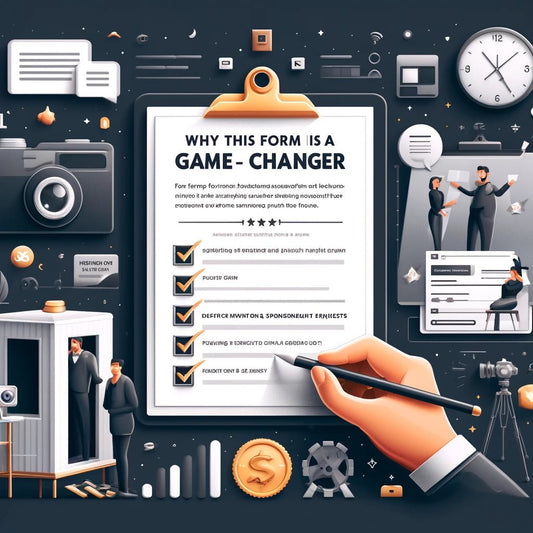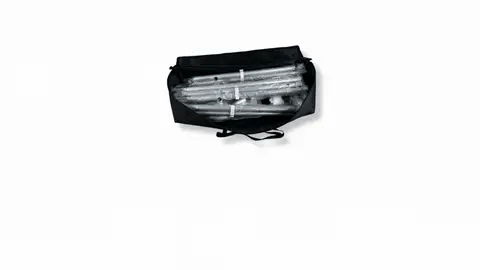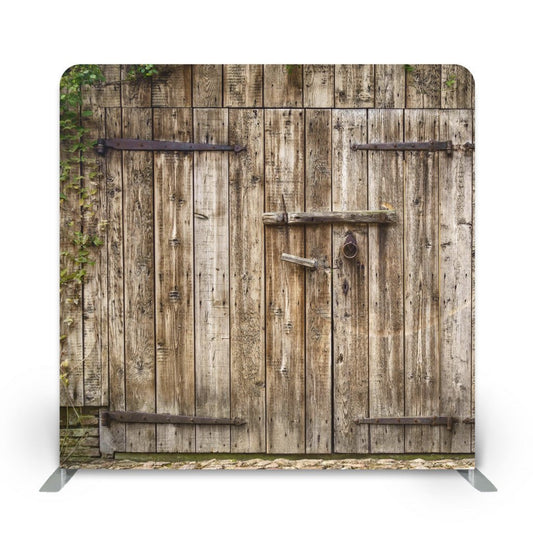
Streamline Your Corporate Event Logistics for Success
Share
.jpg)
What Are Corporate Events?
Corporate events are gatherings organized by companies for specific purposes, such as conferences, seminars, product launches, and team-building activities. These events serve various objectives, including networking, promoting brand awareness, and fostering employee engagement. Corporate events provide a platform for professionals to connect, share knowledge, and showcase their products or services. They offer opportunities for businesses to establish new partnerships, cultivate client relationships, and enhance their reputation within the industry. Corporate events play a crucial role in employee development, fostering a sense of camaraderie and motivation among colleagues. So, what are corporate events? They are organized gatherings designed by companies to achieve specific goals and objectives.
Importance of Corporate Event Logistics
Corporate event logistics are of utmost importance in the success of any corporate event. Their efficient planning and execution play a crucial role in ensuring smooth operations, from selecting and arranging the venue to handling transportation and technical setup. The significance of corporate event logistics lies in their ability to create a seamless experience for attendees, enhance brand image, and achieve event objectives. Proper logistics coordination guarantees well-organized aspects, optimized resources, and proactive resolution of potential issues. In the absence of effective logistics, events may encounter delays, confusion, and dissatisfied participants. Hence, corporate event logistics are essential for crafting memorable and impactful experiences for everyone involved.
An exemplary demonstration of the significance of corporate event logistics can be observed in the 1969 moon landing. The successful transportation of astronauts, equipment, and supplies to and from the moon was a result of meticulous planning and execution of logistics. The coordination of multiple logistical elements was crucial to the triumph of this historic event, ensuring meticulous attention to every detail and minimizing risks associated with such a monumental undertaking. This remarkable achievement underscored the importance of corporate event logistics, emphasizing their value even in the most extraordinary circumstances.
Why is Effective Event Logistics Crucial for Corporate Events?
Effective event logistics is crucial for corporate events because it ensures smooth operations and enhances the overall attendee experience. Without efficient logistics, events can encounter various problems such as delays, transportation issues, or technical glitches. These issues can lead to a negative impression on attendees and impact the event's success. Effective event logistics involves meticulous planning and coordination in areas like transportation, accommodation, food and beverage management, audio-visual setup, and registration. By implementing effective logistics strategies, event organizers can ensure that everything runs seamlessly, creating a positive and memorable experience for attendees. To achieve this, organizers should focus on detailed planning, clear communication with vendors and suppliers, and thorough risk management and contingency planning.
Why is effective event logistics crucial for corporate events? Effective event logistics is crucial for corporate events because it ensures smooth operations and enhances the overall attendee experience. Without efficient logistics, events can encounter various problems such as delays, transportation issues, or technical glitches. These issues can lead to a negative impression on attendees and impact the event's success. Effective event logistics involves meticulous planning and coordination in areas like transportation, accommodation, food and beverage management, audio-visual setup, and registration. By implementing effective logistics strategies, event organizers can ensure that everything runs seamlessly, creating a positive and memorable experience for attendees. To achieve this, organizers should focus on detailed planning, clear communication with vendors and suppliers, and thorough risk management and contingency planning.
Planning and Organizing Corporate Events
Planning and organizing corporate events can be a challenging task, but with the right approach, it can lead to successful outcomes. In this section, we will explore the key steps involved in creating remarkable corporate events. From determining the objectives and goals of the event, to selecting the perfect venue, managing finances, and collaborating with vendors, we will arm you with the essential knowledge to ensure seamless event logistics. So get ready to dive into the world of corporate event planning and make your next event a resounding success.Determining the Event Objectives and Goals
Determining the objectives and goals of a corporate event is essential for its success. Here are the steps to consider when determining these objectives:
- Identify the purpose: Clearly define why the event is being organized and what it aims to achieve.
- Set measurable goals: Establish specific, measurable, achievable, relevant, and time-bound (SMART) goals to track the event's success.
- Understand the target audience: Determine who you want to attend the event and what their needs, interests, and preferences are.
- Align with organizational objectives: Ensure that the event objectives align with the overall goals and mission of the organization.
- Gather stakeholder input: Seek input and perspectives from key stakeholders to gain a comprehensive understanding of their expectations.
- Create an event concept: Develop a concept or theme that will tie all the event elements together and support the objectives and goals.
By following these steps, organizers can align their event objectives and goals with the overall purpose of Determining the Event Objectives and Goals, maximizing its impact and success.
Selecting the Ideal Venue
Selecting the Ideal Venue is a crucial factor in planning a successful corporate event. When choosing a venue for your event, consider the following points:
- Capacity: Ensure that the venue can comfortably accommodate the number of guests you expect.
- Location: Choose a venue that is easily accessible and convenient for attendees.
- Amenities: Look for venues that offer essential facilities like parking, restrooms, and wheelchair accessibility.
- Layout and setup: Consider the layout of the venue and ensure it can be arranged to meet your event requirements.
- Atmosphere: Consider the ambiance and atmosphere of the venue to align with the theme and purpose of your event.
Remember, Selecting the Ideal Venue sets the tone for your event and greatly impacts attendee experience. Suggestions for ideal venues may include hotels with flexible event spaces, conference centers with state-of-the-art facilities, or unique outdoor locations that offer a memorable setting for your gathering.
Managing Budget and Finances
- Managing budget and finances is a critical aspect of planning corporate events. Here are some essential steps to effectively manage the financial aspect:
- Create a detailed budget outline, including estimated costs for venue, food and beverage, audio-visual setup, transportation, and other necessary services.
- Research and compare prices from different vendors to ensure you are getting the best value for your money.
- Negotiate with suppliers for discounts or package deals to help reduce costs.
- Track all expenses and monitor the budget throughout the planning process to identify any potential overspending.
- Consider alternative funding sources, such as sponsorship or ticket sales, to offset some of the event costs.
- Regularly update stakeholders on the financial status of the event to maintain transparencyand avoid any surprises.
Hiring and Collaborating with Vendors and Suppliers
When planning corporate events, hiring and collaborating with vendors and suppliers is crucial for a successful outcome. This involves finding reliable and experienced professionals who can provide necessary services and products. When selecting vendors and suppliers for corporate events, it is important to consider the following:
1. Reputation: Look for vendors and suppliers with a good reputation in the industry. It is essential to hire and collaborate with reputable vendors and suppliers to ensure the success of the event.
2. Expertise: Choose professionals who specialize in the specific services or products needed. Hiring vendors and suppliers with expertise in the required areas will guarantee high-quality services and products for the event.
3. Cost: Compare prices and negotiate contracts to ensure competitive rates. It is advisable to assess the costs offered by different vendors and suppliers and negotiate favorable contracts to stay within the event budget.
4. Flexibility: Select vendors and suppliers who are adaptable and can accommodate any changes or special requests. Flexibility is key in dealing with unforeseen circumstances or last-minute changes that may arise during the event planning process.
5. Communication: Maintain open and clear communication to ensure all requirements are met. Effective communication with vendors and suppliers is essential for conveying expectations and ensuring that all aspects of the event are delivered as per the plan.
By hiring and collaborating with the right vendors and suppliers, corporate events can run smoothly and meet the expectations of attendees and organizers alike. Hiring and collaborating with vendors and suppliers play a vital role in the success of corporate events.
Logistical Considerations for Corporate Events
Planning a successful corporate event requires paying attention to a myriad of logistical considerations. In this section, we will explore the critical aspects that can make or break your event's success. From transportation and travel arrangements to accommodation and lodging, food and beverage management, audio-visual setup and technology, and registration and ticketing, we will uncover the key elements that contribute to a seamless corporate event experience. So, let's dive in and unearth the secrets behind flawless event logistics.Transportation and Travel Arrangements
Transportation and travel arrangements are a crucial aspect of successful corporate events. Ensuring seamless transportation for attendees is vital for the overall experience and convenience. This includes coordinating transportation to and from the event venue, as well as organizing any necessary airport transfers or local transportation during the event. Hiring dependable transportation services and managing logistics with airlines and hotels is essential in meeting the needs of participants. By giving priority to transportation and travel arrangements, event organizers can enhance attendee satisfaction and ensure efficient event operations.
Accommodation and Lodging
When organizing corporate events, it is essential to carefully consider accommodation and lodging options. Here are some important factors to keep in mind:
- Comfort: Prioritize selecting accommodations that focus on providing comfort and a range of amenities for attendees.
- Location: Opt for a venue that is conveniently located near the event site and offers easy transportation options.
- Capacity: Verify that the chosen accommodations can comfortably accommodate all participants.
- Special requirements: Take into account any special needs or preferences, such as accessibility or dietary restrictions.
- Cost-effectiveness: Strive to strike a balance between the quality of the accommodations and the allocated budget for the event.
Food and Beverage Management
During corporate events, effective management of Food and Beverage Management is vital to ensure optimal guest satisfaction. This calls for meticulous planning and coordination to cater to attendees' dietary preferences and restrictions. Here is a table summarizing the key elements of Food and Beverage Management:
| Aspect | Importance |
|---|---|
| Menu Selection | Provide a diverse range of dishes to accommodate varying tastes and dietary restrictions. |
| Dietary Restrictions | Take into consideration allergies, religious or cultural restrictions, and offer suitable alternatives accordingly. |
| Catering Services | Collaborate with reputable caterers capable of delivering high-quality food and providing exceptional service. |
| Beverage Options | Ensure a wide selection of both non-alcoholic and alcoholic beverages to cater to all preferences. |
| Service Flow | Plan for efficient service to minimize queues and delays. This necessitates appropriate staffing and strategic station setup. |
| Presentation | Focus on the visual appeal of food and drink displays while ensuring correct temperature and freshness. |
By carefully considering these factors, event planners can effectively manage Food and Beverage Management to enhance the overall experience for attendees.
Audio-Visual Setup and Technology
When it comes to corporate events, incorporating audio-visual setup and technology is essential for creating a successful and engaging experience for attendees. Here are some key considerations to keep in mind:
- Choose the right equipment: It is important to select high-quality audio and visual equipment that is suitable for the size and nature of your event.
- Ensure seamless integration: Make sure that all audio-visual elements, including sound systems, microphones, projectors, and screens, work together seamlessly to deliver a professional and immersive experience.
- Engage with interactive technology: Enhance participant engagement by incorporating interactive elements such as touchscreens, virtual reality, and augmented reality, which can greatly enhance their overall experience.
- Professional technical support: It is crucial to have skilled technicians on-site who can set up and operate the audio-visual equipment, troubleshoot any issues that may arise, and ensure a smooth flow of the event.
- Utilize live streaming and recording: Consider live-streaming your event to reach a wider audience and also recording the proceedings for future reference or marketing purposes.
Did you know? According to a study, incorporating audio-visual elements can increase information retention by up to 65%.
Registration and Ticketing
Incorporating registration and ticketing properly is essential for corporate events to ensure seamless attendee management and access control. Consider the following crucial factors:
- Online registration: Simplify the registration process and gather necessary attendee information by providing a user-friendly online registration platform.
- Ticketing options: Offer a variety of ticket types, including early bird discounts, VIP passes, and group rates, to cater to different attendee preferences and budgets.
- Scanning and check-in: Streamline the check-in process and enable efficient entry for registered attendees by implementing barcode or QR code scanning systems.
- On-site registration: Set up on-site registration counters equipped with the necessary hardware and personnel to accommodate last-minute registrations and walk-in attendees.
- Payment processing: Ensure convenience for attendees by integrating secure payment gateways for online ticket purchases.
Did you know? According to Eventbrite, 21% of event organizers consider ticketing technology as the most important technology for their events.
Risk Management and Contingency Planning
Risk management and contingency planning are crucial aspects of corporate event logistics. It is important to conduct a thorough risk assessment to identify potential hazards and vulnerabilities. To effectively address these risks, create a contingency plan that outlines specific actions to take in response to identified risks. It is essential to communicate this contingency plan to all relevant stakeholders so that everyone understands their roles and responsibilities. Regularly reviewing and updating the contingency plan as necessary will ensure it addresses any emerging risks.
Pro-tip: In addition to planning for common risks, it is important to consider unlikely scenarios to be fully prepared for any unforeseen circumstances.
Post-Event Evaluation and Feedback
Evaluate and improve your corporate events with a comprehensive post-event evaluation. Discover how assessing the success of the event and gathering valuable feedback can enhance future planning and ensure greater attendee satisfaction. Uncover the key factors to consider, backed by reliable data, to make your corporate events a resounding success. Don't miss out on optimizing your event logistics strategy for better outcomes!Assessing the Success of the Event
Assessing the success of the corporate event is crucial to measure its effectiveness and make improvements for future events. Here are some key factors to consider when evaluating the success of the event:
| Attendance | Assess the number of attendees compared to the target audience and analyze any fluctuations or trends. |
|---|---|
| Feedback | Gather feedback from participants through surveys or interviews to gauge their satisfaction level and identify areas for improvement. |
| Achievement of goals | Evaluate whether the event achieved its objectives, such as increasing brand awareness or generating leads. |
| ROI | Measure the return on investment by analyzing the event's impact on revenue, sales, or other measurable outcomes. |
| Media coverage | Assess the amount and quality of media coverage to determine the event's visibility and reach. |
To improve future events, consider implementing the following suggestions:
- Implement a post-event debriefing session to discuss successes and areas for improvement.
- Use data analytics to track key performance indicators and identify trends.
- Continuously update event strategies based on feedback and industry best practices.
- Engage with attendees through social media platforms to maintain a relationship and gather real-time feedback.
Frequently Asked Questions
1. What should we consider when planning for international travel for our corporate event?
When planning for international travel, it is important to consider factors such as visas, passports, travel insurance, and any specific entry requirements for the country you are visiting. Additionally, you should research the local customs and culture to ensure that your attendees have a smooth and enjoyable experience.
2. How can we ensure a successful networking reception at our corporate event?
To ensure a successful networking reception, consider factors such as creating designated networking areas, providing name tags or badges for attendees, and using icebreaker activities to encourage conversation. It is also important to offer a variety of food and beverage options to cater to different dietary preferences and needs.
3. How can we plan for a virtual conference effectively?
When planning for a virtual conference, it is crucial to invest in a reliable event platform that can handle the number of attendees and provide interactive features. You should also schedule regular technical support sessions to address any issues that may arise during the conference. Offering pre-recorded sessions and live Q&A sessions with keynote speakers can enhance attendee engagement.
4. How can we navigate the negotiation process when working with vendors for our corporate event?
When negotiating with vendors for your corporate event, it is important to thoroughly research and compare different options. Clearly define your event requirements and budget beforehand and be prepared to negotiate on aspects such as pricing, services, and additional benefits. Building a good rapport and maintaining open communication with vendors can also help in negotiating favorable terms.
5. How should we handle room placements for our corporate event?
When handling room placements for your corporate event, consider factors such as the estimated attendance, specific needs of different attendee groups (such as VIPs or speakers), and any mobility issues that need to be accommodated. It is important to communicate room assignments clearly to attendees and provide a detailed organization of the event schedule and room locations.
6. What should we do if our corporate event logistics go awry?
If your corporate event logistics encounter unexpected challenges, it is important to remain calm and adaptable. Identify the root cause of the issue and communicate it to the relevant team members or stakeholders. Brainstorm alternative solutions and implement them as quickly as possible to minimize the impact on the event. Having contingency plans in place beforehand can also help in managing such situations effectively.






